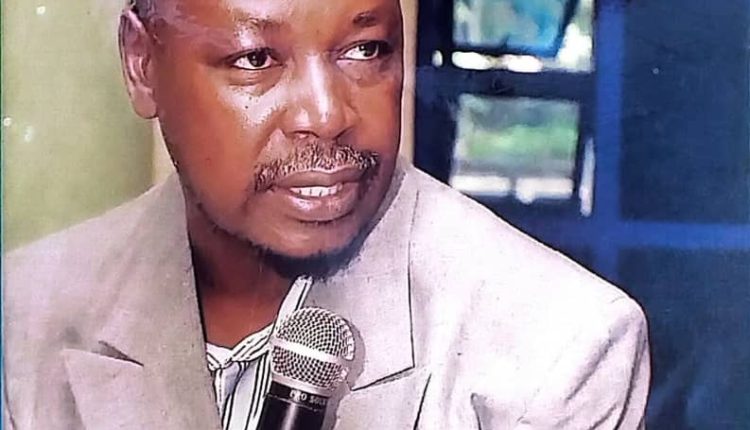Nigeria’s fragility, democracy, and the 2027 elections
By Comrade Sanusi A. S. Maikudi
In the complex and ever-evolving landscape of global geopolitics, the strength of a nation is not only measured by its economic prowess or military might but by its resilience in the face of internal and external pressures. Nigeria, Africa’s most populous nation and one of its largest economies, continues to face formidable challenges that test the very foundations of its democratic experiment.
Some may ask, rhetorically and often disingenuously: “Where were you during Buhari’s tenure?” or “Why speak out now?” To them, let it be clearly stated—Nigeria is greater than Presidents Buhari and Tinubu combined. The right of citizens to discuss, critique, and analyze the state of their nation is not tied to who occupies Aso Rock. Silence in the past does not disqualify voices in the present. Our collective future is not served by weaponizing hindsight to stifle current reflection.
Media bullies, commissioned spokespersons, and partisan influencers have no monopoly over the national conversation. They have no right to dictate when, how, or why a Nigerian citizen chooses to speak on matters of national importance. Every citizen reserves the constitutional and moral right to call attention to injustice, fragility, or leadership failure—regardless of timing or political tides.
According to the 2024 Fragile States Index (FSI)—a global ranking developed by Foreign Policy Magazine and The Fund for Peace—Nigeria ranks 15th out of 178 countries, with a worrying composite score of 96.6 out of 120. This places the country in the “High Alert” category, signaling deep-rooted systemic vulnerabilities that could undermine the stability and legitimacy of its institutions, especially as we edge closer to the 2027 general elections.
The FSI is structured around 12 key indicators grouped into social, economic, and political categories. These indicators shed light on how demographic pressures, displacement, economic decline, corruption, insecurity, and elite factionalism are threatening the cohesion and functionality of the Nigerian state.
A Nation on the Brink?
The Social indicators reveal sobering truths:
Demographic pressures scored 9.6, highlighting the strain of a youthful and rapidly growing population amidst food insecurity, healthcare limitations, and inadequate infrastructure.
Group grievances, particularly ethnic and religious divisions, scored 8.3—unsurprising in a country where identity politics often fuels violence.
With over 3 million internally displaced persons, Nigeria’s IDP and refugee score sits at 6.1, underlining the persistent insecurity in the North-East, Middle Belt, and North-West.
Economically, the country is equally fragile:
Economic decline and poverty registered a distressing 8.9.
Uneven development (8.0) and brain drain (6.6) are testament to the frustration of millions of Nigerians who feel left behind or compelled to seek better opportunities abroad.
In the political realm, the outlook is dire:
State legitimacy and public services both scored 8.9, while human rights and rule of law scored 8.3.
Most troubling, elite factionalism scored 9.6—among the highest—indicating a political class more invested in personal gain than nation-building.
The security apparatus also scored 8.7, reflecting the state’s diminishing monopoly on violence in the face of terrorism, kidnapping, and communal conflict.
Democracy Under Siege?
As Nigeria prepares for the 2027 general elections, these fragility scores are not just numbers—they are warning signs. Elections in fragile states are often double-edged swords: while they can be instruments of democratic renewal, they can also become triggers for violence, especially when institutions are weak, and the legitimacy of the process is in question.
If history is any guide, the political landscape leading to 2027 is likely to be marred by increased ethno-religious mobilization, voter suppression, judicial compromise, and electoral violence. In such an environment, the elections risk becoming a contest not of ideas but of survival—a zero-sum game played by elite factions manipulating a frustrated electorate.
What Must Be Done?
Strengthen state legitimacy. Tackle corruption, improve transparency, and ensure that government policies serve all Nigerians—not just a privileged few.
Invest in social cohesion. Move beyond token federalism and identity politics to embrace a truly inclusive political culture where every citizen feels a sense of belonging and stake in the national project.
Reform the electoral process. From INEC’s independence to the role of the judiciary and security agencies, there must be a concerted effort to ensure that the 2027 elections are credible, transparent, and peaceful.
Overhaul security infrastructure. Without addressing the root causes of violence and building a professional, community-oriented security architecture, no election—however well-intentioned—will deliver peace or progress.
Conclusion
Nigeria stands at a crossroads. The data from the Fragile States Index is not just a mirror reflecting where we are; it is a map showing where we are headed—unless we change course.
Citizens must not be intimidated or silenced by partisan gatekeepers or revisionist gatekeepers of national discourse. If Nigeria is ever to move beyond its cycles of fragility and dysfunction, then honest engagement—past, present, or future—must be welcomed, not vilified.
As the clock ticks toward 2027, the time to act is now. The fragility of our nation must not be the backdrop for another contentious election. Rather, it should be the rallying cry for a collective national rebirth—anchored in justice, unity, and democratic integrity.
Comrade Maikudi is of Network for Justice, Kaduna.



Comments are closed, but trackbacks and pingbacks are open.